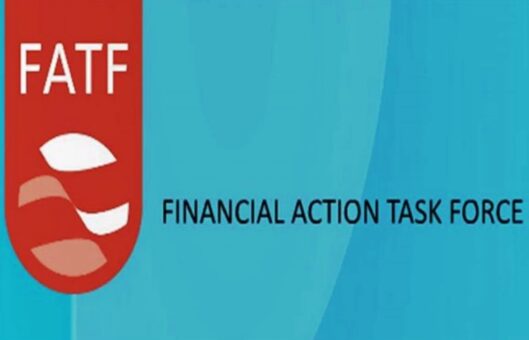Paris: The Financial Action Task Force (FATF), the preeminent global body overseeing anti-money laundering and countering the financing of terrorism (AML/CFT) efforts, concluded its fifth Plenary under the Singaporean presidency with significant strides in strengthening international frameworks.
One of the key advancements involves the initiation of a public consultation on potential amendments to the FATF Recommendation on wire transfer information. Simultaneously, the FATF adopted new guidance on trusts, aiming to enhance global standards in the realm of combating illicit finance.
Expressing concern over the Russian Federation’s increasing financial connectivity with North Korea and Iran, the FATF has placed the issue high on its agenda. The organization condemned Russia’s full-scale military invasion of Ukraine, labeling it illegal, unprovoked, and unjustified. The FATF also highlighted the adverse effects of Russia’s expanded proliferation financing, malicious cyber activities, and ransomware on the global financial system, urging jurisdictions worldwide to remain vigilant against these risks.
The recent Plenary aligns with the ongoing commitment of the United States Department of the Treasury to fortify financial transparency and counter illicit finance. Treasury Secretary Janet L. Yellen commended the FATF’s crucial work, particularly at a time when the United States is implementing historic initiatives to safeguard its financial system.
Brian E. Nelson, Under Secretary for Terrorism and Financial Intelligence, updated the FATF on the Treasury’s recent AML/CFT initiatives. These efforts include the operationalization of a beneficial ownership information filing system, proposed rulemakings addressing vulnerabilities in the U.S. residential real estate and investment adviser sectors, and updated National Risk Assessments on Money Laundering, Terrorist Financing, and Proliferation Financing. Under Secretary Nelson emphasized the alignment of these initiatives with the FATF Standards, signaling a profound momentum in the United States’ commitment to combating illicit finance.
The FATF’s focus on strengthening global AML/CFT standards was evident in its approval of various initiatives. These include commencing public consultation on potential changes to Recommendation 16 on wire transfers, endorsing new guidance for implementing strengthened requirements for trusts, and developing a comprehensive table outlining steps that specific countries are taking to implement FATF Standards related to virtual asset service providers. This multifaceted approach aims to enhance global adherence to AML/CFT standards, mitigate regulatory arbitrage, and provide governments and the private sector with best practices to counter illicit finance risks across sectors.
In closing, the FATF announced that Mexico is set to assume the presidency in July 2024, affirming the organization’s commitment to a coordinated and sustained effort against money laundering and terrorist financing on a global scale.
